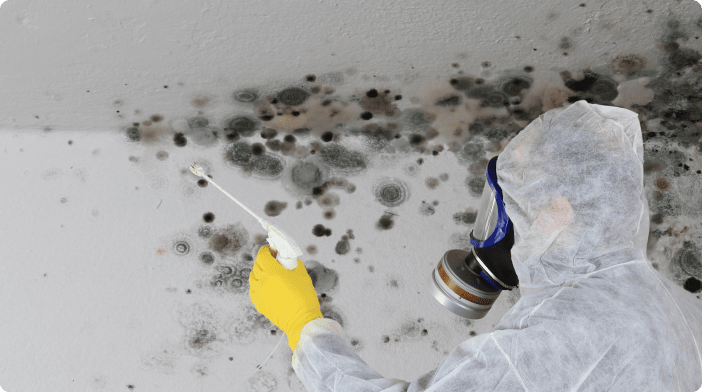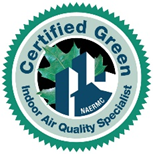The Mold Assessment Process
While testing for mold can be tempting as a DIY project, it’s often not recommended. The process involves acquiring the right testing equipment, following testing protocols meticulously to ensure accuracy, and minimizing exposure to mold spores for you and your family. These tasks can quickly become overwhelming.
That’s why in many cases, it’s best to enlist the help of a professional. A professional mold assessor can provide accurate and verifiable testing results. Moreover, they can work with you to schedule remediation and property repairs as needed, offering expert guidance every step of the way. Don’t take chances with mold – trust the expertise of a professional for thorough and reliable results.



Certified Team
Our assessors hold NAERMC certification, guaranteeing their expertise and professionalism.

Trusted Company
We're licensed by the State of Florida and fully insured, ensuring top-notch service and peace of mind.
For Certified, Licensed, and Insured Assessment/Testing, Precision Risk Assessment is your trusted partner. Upon receiving an assignment from insurance companies, water mitigation firms, mold remediation companies, or property owners, we promptly schedule an appointment to access the property.
A Certified/Licensed professional from Precision Risk Assessment conducts a comprehensive inspection of the risk, followed by an assessment of potential hazards and specific types of mold testing. Our team utilizes specialized testing equipment and laboratory studies to ensure a thorough evaluation of the property and its indoor air quality (IAQ). As part of our assessment, we also map out moisture issues in your property, providing valuable insights for optimal drying strategies.
Contact Precision Risk Assessment today to schedule an inspection for your home, business, or job site. Trust us for precise and reliable assessment services.
What is Mold?
While some may use the terms “mold” and “mildew” interchangeably, they actually refer to distinct entities. Mildew specifically denotes certain types of molds, whereas mold serves as a broader term.
Mold, a form of fungus, thrives on organic matter in damp or decaying conditions. It encompasses various species that can flourish indoors or outdoors. Mold spores exist ubiquitously, even in impeccably clean environments, leading to universal exposure. While molds themselves are not inherently toxic, certain varieties can be toxigenic, generating spores or cell fragments that release toxins. Additionally, they may produce allergens and inflammatory substances. Research suggests that exposure to mold and/or dampness in childhood may heighten the risk of developing asthma and allergies later in life.
Questions To Ask
-
If I am not allergic will Mold still affect me?
-
How do I know if I have a mold problem?
-
What if I suspect the presence of mold but cannot find it?
-
If I can’t see mold, how will I know it’s there?
-
Is exposure to Mold dangerous?
-
How much Mold can make me sick?
-
What symptoms do molds commonly cause?
-
Are Some Molds more hazardous than others?
-
If I see mold, couldn’t I just treat it myself with an off-the -shelf spray?
-
After I contact Precision Risk Assessment, how quickly can the initial mold inspection/assessment take place?
Schedule an Inspection
Precision Risk
Assessment
Contact Precision Risk Assessment now to schedule your inspection and testing appointment. Receive your detailed report in as little as 24 hours after our inspection.



